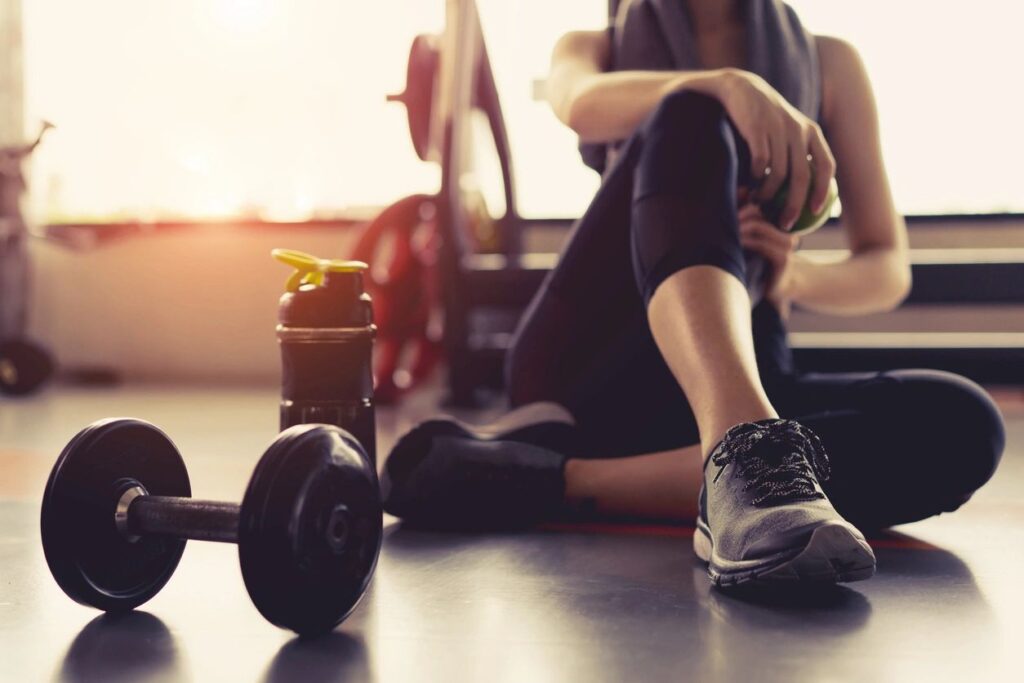The outbreak of corona virus COVID-19 has dramatically changed our lives in many different ways. Social gathering restrictions, constantly changing media coverage of corona virus spread, and staying inside for extended periods of time are some key factors responsible for feelings like fear and anxiety. During times like this, it is not hard to understand that our lives will be different for a while to help us keep safe from corona virus.
As COVID-19 conditions prevail and we may have to stay in our homes most of the time, many of us may find regular exercising slipping off our daily schedule. Latest research shows that one hour a week of exercise can be highly effective for reducing depression. You probably are familiar with the endorphin rush and resulting improved mood, you experience after a workout. That’s because exercise provides distraction from negative thoughts and improves your memory and sleep.
Black Dog Institute conducted a study in 2017 and found that regular exercise of any intensity can prevent future depression, regardless of your age or gender. Health Study of Nord-Trøndelag County (HUNT study) also conducted an experimental research in which researchers examined the experiences of nearly 34,000 Norwegian adults, monitoring their depression and anxiety level in relation to amount of exercise they self-reported over an 11-year period. The data showed that even small amounts of exercise were giving positive results against depression. In fact, 12 per cent of cases of depression could have been prevented if participants had undertaken just one hour of exercise per week.
These results highlight the importance of exercise as a tool against depression and anxiety, and millions or so Australians can get inspired by these studies. “Most of the mental health benefits of exercise are realized within the first hour undertaken each week” Lead author Associate Professor Samuel Harvey from Black Dog Institute and UNSW says.
It is particularly relevant to social restrictions and self-isolation measures that define Australia’s response to COVID-19. While many of us are now working from home and outdoor activities reduced to minimum, it can be tempting to retreat to that comfy sofa in the lounge and stay tucked in for quite some time. Don’t you think that is the opposite of what we should be doing? Isn’t it time to figure out ways to integrate exercise of any kind into our daily or weekly routine?
Even with COVID-19 restrictions in place, you’re still permitted to leave your home to exercise. Head out for a gentle walk – just make sure you follow social distancing guidelines when you are out there with other people.
If you’re feeling anxious or stressed:
Exercise isn’t just about being physically active; being aware of how you’re feeling and knowing what you can do to look after your mental health is also an equally important part of staying healthy during this challenging time.
Try to follow suggestions given below to relieve mental stress.
Maintain perspective: remember that health experts around the world are working hard to help you and thinking of all the work going on in health sector to cope corona virus will ease your nerves. Also, as corona virus or COVID-19 can affect anyone, those who fall under confirmed corona virus cases haven’t done anything wrong. So don’t assume that they are endangering you or your family.
Stay connected and/or seek support: keeping in touch with your family, friends, colleagues is very crucial for your mental health. Get in touch with your loved ones and share your experiences with others. You might get a chance to learn new things or ways from others to keep you upright against corona virus. Just talking, to someone you know, for a while can be an instant reliever for anxiety. Stay connected by phone, video call, social media or email. Don’t forget to get professional support if you find yourself in serious trouble.
Stick to a routine: Plan your day ahead of anything. Getting plenty of sleep, maintaining physical activity, eating healthy foods and allocating specific work hours for everyday tasks and breaks, are the best ways to keep you physically and mentally fit. Try to extract positive out of negative, for instance if you’re feeling frustrated about current experience you are going through, think about what positive habits you have and might be able to develop, such as giving more time to your family members within your household, getting to know your neighbors, getting a chance to learn new cooking recipes or sparing more time for painting which you love to do.
Media coverage: Well, media is something which impacts your mental health most. Do not expose yourself to too much information from media whether it is T.V or social platforms. Too much is happening out there, and your brain can’t just absorb everything. Find a healthy balance and limit news and social media feeds if you find it too distressing. Social media is important to stay connected to your friends and family, but it is important to control what you are feeding to your brain through social media.
Sources of information: Government and health authorities are doing their best to keep you informed about latest developments regarding corona virus. Try to look for credible sources to access this information, for example, news from your State Health Department, Australian Government and World Health Organization (WHO)).
Stay calm and be practical: You must resist the urge to panic, as this makes it harder for authorities to manage the outbreak effectively. Stay calm and develop practical approach to handling current COVID-19 pandemic.

